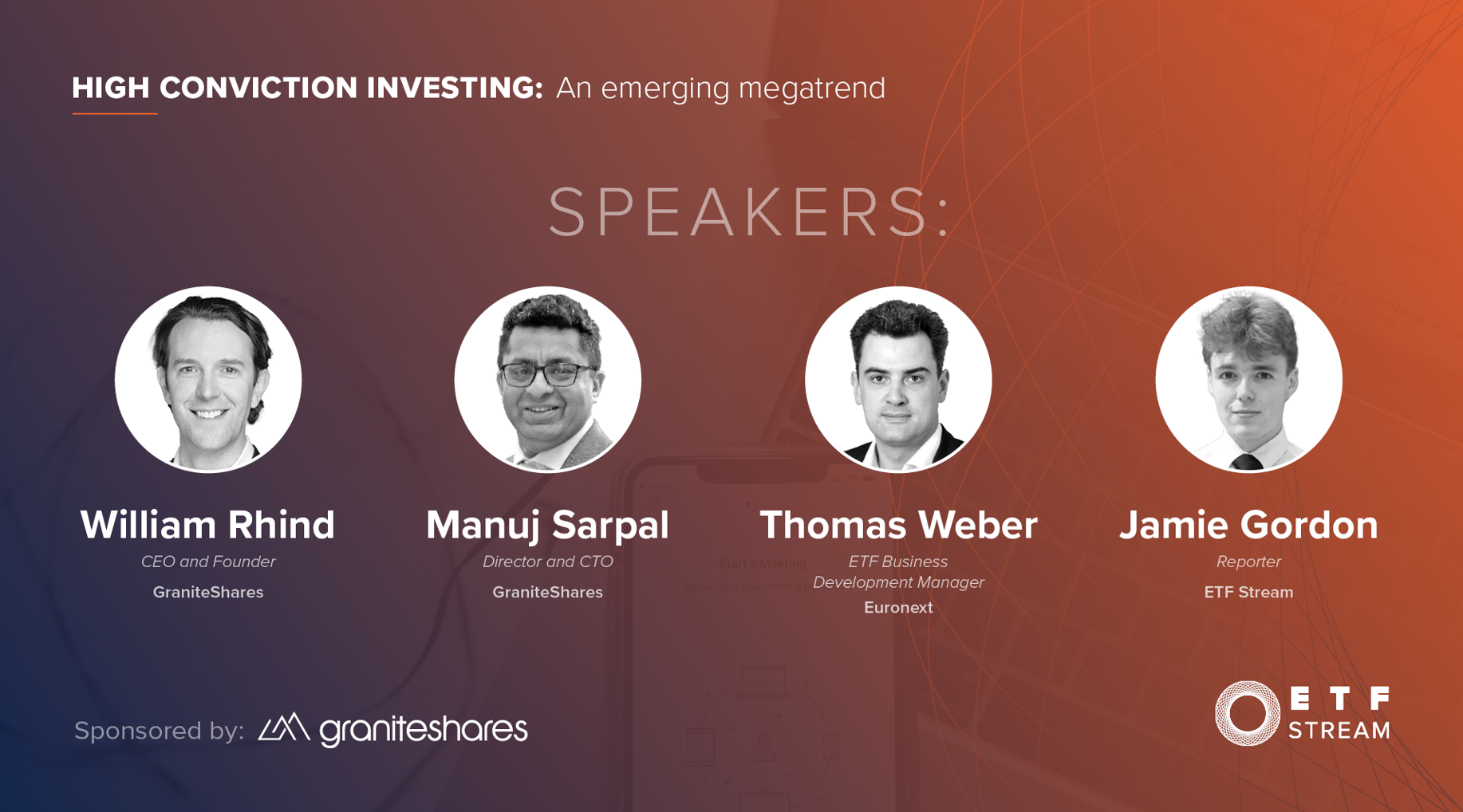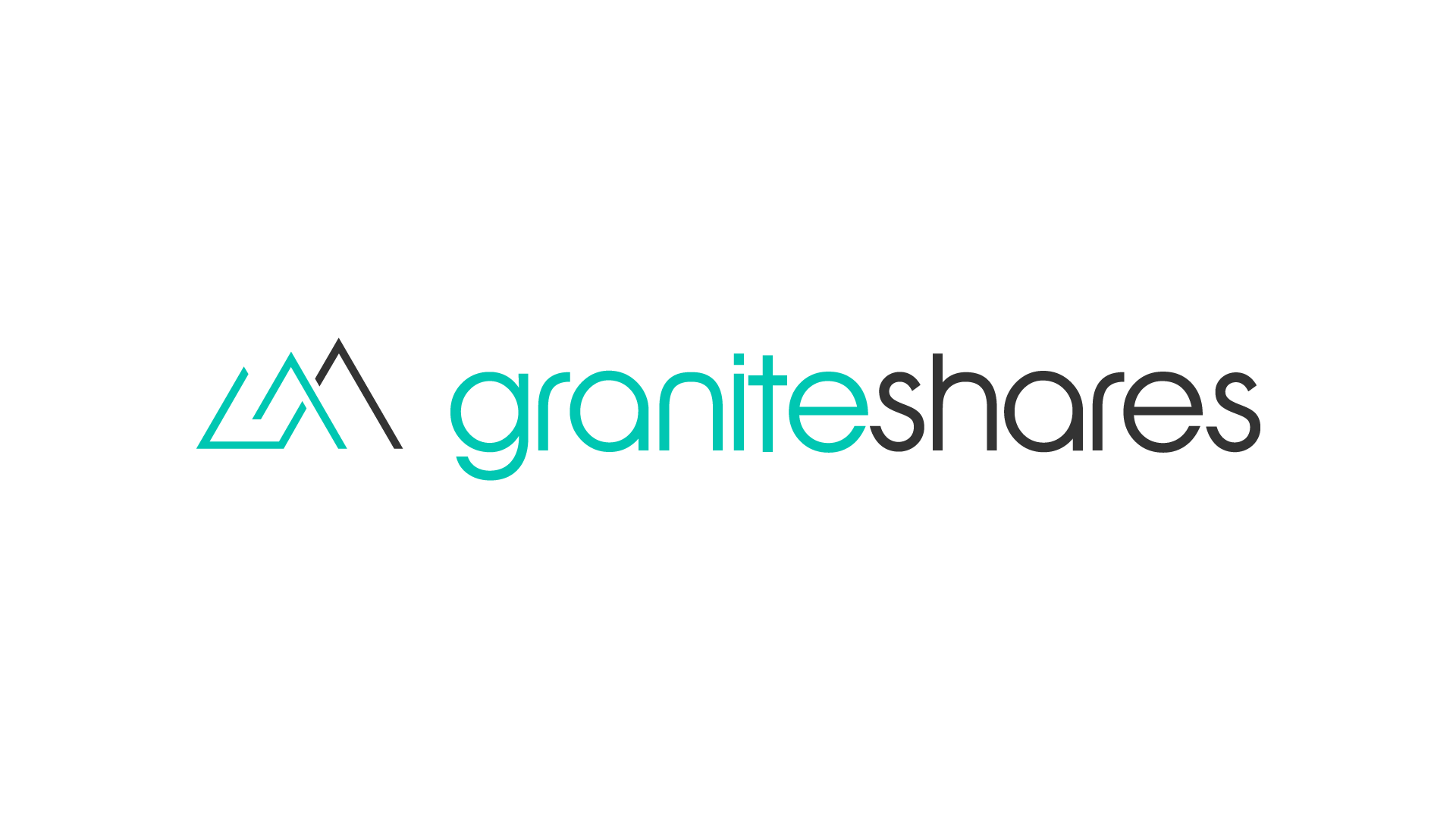Why the time is now for high conviction trading, where the biggest demand for short and leveraged exchange-traded products (S&L ETPs) is in Europe and why online legacy brokers are not doing enough to upgrade their platforms were the topics discussed at ETF Stream’s recent webinar in partnership with GraniteShares.
The webinar, titled High conviction trading: An emerging megatrend, started by looking at how S&L products grew in popularity during the pandemic recovery but now find themselves in a very different environment.
Will Rhind, CEO and co-founder of GraniteShares, said the current market conditions have created a favourable environment for conviction investing.
“Now really is the time for conviction investing,” he said. “The majority of investors cannot go short and are effectively trapped in long-only products. One of the ways that we have seen investors looking to participate in this market is to hedge portfolios, holding a short leveraged or unleveraged ETP.”
Rhind pointed GraniteShares’ inverse FAANG ETP that has seen inflows in recent months. “That tactical position has made a lot of money in this environment and has been a very lucrative thing to do,” he added.
The GraniteShares 3x Short FAANG Daily ETP (3SFG) tracking Amazon, Apple, Alphabet, Meta and Netflix has returned 98.8% in the three months to 21 June.
He added the only winning trades this year have been commodities or real assets, adding investors have been using S&L products as a hedge in order “not to lose money”.
Demand across Europe
Thomas Weber, ETF business development manager at Euronext, said investors have been responding to the opportunities being created from the recent volatility and the emergence of the single stock S&L ETPs that have come to market.
He said: “Since we have had these new products based on single stock specifically, we have seen a very interesting growth rate, albeit coming from a low base. However, we are confident this will continue in the future.”
Weber added investors have been very active on commodity ETPs as well as single-stock S&L products such as Tesla and Nio.
Furthermore, he said Euronext’s recent acquisition of Borsa Italiana means it has acquired a market “with a stronger track record of trading in these kinds of instruments”.
“There are many regional differences. In very broad terms, Italy is probably one that is the strongest interest in short and leveraged products, but there is a very general trend upwards. That is a function of increased volatility but the uptake there is very strong,” he said.
According to Euronext, the volumes of short and leverage products in Italy have risen from 11% at the beginning of last year to around 17% in January this year.
Weber added: “Across our legacy markets, mainly Amsterdam and Paris, I would say it is fairly equal in terms of participation and investor interest.”
Despite this, Rhind noted there was still a long way to go in Europe to break down barriers created by fragmentation, despite recent breakthroughs in technology.
“There is no such thing as a European ETF market,” he said. “It is a collection of individual countries that have individual regulatory regimes and specific nuances. It goes back to what we were saying about the evolution of this megatrend, the democratisation of finance, and over 20 years of dealing with the ETF market in Europe, we have seen the landscape changing quite dramatically.”
Rhind added there was also a psychological difference between US and European investors, with the latter having a strong bias towards buying long securities, with very few people willing to take short or opposing views.
Can legacy broker platforms do more?
Another area of the European market that could be improved is the technology used by legacy broker-dealers which cannot facilitate S&L ETP trades.
Rhind said: “We are dealing with some legacy broker-dealers, even though you are listed on Euronext, and have the latest and greatest settlement technology, that cannot clear or support that particular product.”
He added many legacy brokers are “not doing enough” to improve their technology platforms but this is the reason why we are seeing so many fintech companies come along and take a huge amount of market share.
Weber agreed legacy broker-dealer platforms are not doing enough to update their offerings but added the area is seeing significant growth without them doing so.
“Our research is very promising, the influx of retail investors is not something that seems to be decreasing and we are holding at a pretty good level in terms of the impact on short and leveraged ETPs,” he said. “It does not have much of an impact for this particular sort of product grouping.”
To watch the full webinar, click here.
Related articles




